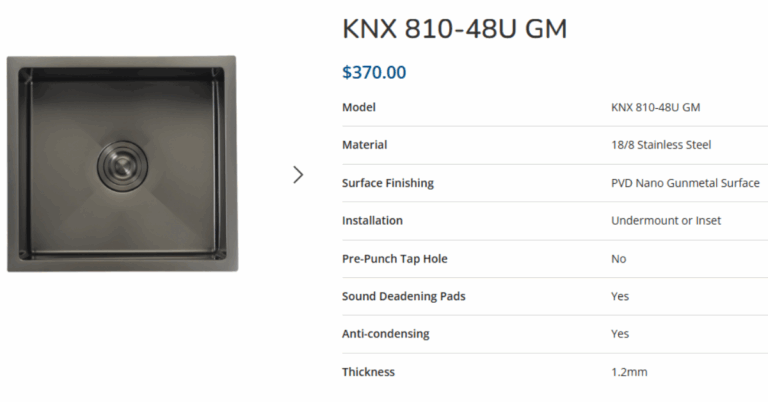Best CRM for Universities: Transforming Admissions and Engagement in Higher Education
In today’s fast-evolving education landscape, universities are facing a variety of challenges—from declining student engagement to managing large volumes of inquiries and optimizing the admission process. To stay competitive, universities must adopt smarter systems that can help streamline communication, automate processes, and personalize student interactions.
Enter the Best CRM For Universities a comprehensive solution that empowers institutions to manage their recruitment lifecycle, enhance student relationships, and make data-driven decisions. Designed specifically for higher education, these platforms go beyond traditional customer relationship management to support student-centric engagement throughout their academic journey.
What is a University CRM?
A University CRM is a specialized customer relationship management system built to handle the complex communication, marketing, and operational needs of higher education institutions. From tracking prospective students and managing applications to improving post-enrollment support and alumni relations, a CRM system for universities serves as the digital backbone of student engagement.
Unlike generic CRM tools, university CRMs offer tailored features that align with the academic calendar, admissions cycle, and student lifecycle, making them an ideal fit for colleges and universities.
Why Universities Need a CRM System
Higher education is no longer limited to in-person interactions and paper-based processes. With rising student expectations and growing global competition, universities must adapt to modern tools that offer:
1. Streamlined Admissions
Universities receive thousands of applications and inquiries every year. A CRM allows institutions to automate responses, segment applicants, and assign admissions counselors efficiently, ensuring no lead is left unattended.
2. Personalized Communication
From open house invitations to application deadline reminders, a CRM enables universities to personalize communication across channels like email, SMS, and WhatsApp—leading to better engagement and higher conversion rates.
3. Centralized Data Management
A CRM system keeps all student-related information—academic background, communication history, interests, and interactions—in one centralized location accessible by admissions, marketing, and student services teams.
4. Enhanced Marketing Campaigns
With built-in automation, universities can run targeted marketing campaigns based on geography, academic interest, or behavior, boosting outreach efforts.
5. Data-Driven Decision Making
Real-time analytics and dashboards offer insights into campaign performance, application trends, counselor productivity, and more—helping administrators make informed decisions.
Features to Look for in the Best CRM for Universities
The best CRM software for universities should be flexible, intuitive, and designed for educational workflows. Here are the must-have features:
Lead Management
Efficiently capture and manage leads from multiple sources such as website forms, education fairs, webinars, email campaigns, and third-party portals.
Application Tracking
Monitor the status of each applicant through a customizable pipeline—from inquiry and document submission to interview and final decision.
Automation Workflows
Automate repetitive tasks like email follow-ups, application reminders, interview scheduling, and offer letters to improve operational efficiency.
Multi-Channel Communication
Communicate with students via their preferred channels—email, SMS, WhatsApp, or phone—and maintain a full interaction history for context.
Counselor Assignment and Monitoring
Assign leads to admissions counselors based on expertise, region, or workload, and track their progress using performance metrics.
Personalized Campaigns
Send targeted communications and campaigns based on student interests, location, or academic background to boost conversion and retention.
Reporting and Analytics
Track performance metrics in real-time, including number of inquiries, application conversion rate, source of leads, and ROI of marketing campaigns.
Integration Capabilities
Seamlessly integrate with your university’s existing systems such as Learning Management Systems (LMS), ERP, payment gateways, and scheduling tools.
Benefits of Using a CRM in Universities
Implementing a CRM solution tailored for higher education institutions can significantly enhance efficiency and outcomes across departments:
Boosted Admissions
Improve response time, track application progress, and enhance follow-up—leading to increased application-to-enrollment conversion rates.
Higher Student Engagement
Personalized interactions and timely responses result in stronger relationships and higher levels of student satisfaction.
Increased Productivity
Automation reduces manual workloads, enabling staff to focus on high-value activities like student advising and strategy.
Unified View of Students
Access a complete 360-degree view of each student, from prospect to alumnus, enhancing service delivery and long-term engagement.
Improved Marketing Efficiency
Gain better visibility into what’s working through performance analytics, helping refine marketing and recruitment strategies.
How to Choose the Best CRM for Your University
With multiple CRM providers in the market, it’s essential to choose a platform that fits your institution’s unique needs. Here are some key factors to consider:
1. Education-Focused Features
Make sure the CRM is built for the education sector, with tools specifically for student lifecycle management, academic tracking, and communication workflows.
2. Scalability
As your university grows and processes become more complex, your CRM should be able to scale seamlessly with minimal disruptions.
3. Ease of Use
User-friendly interfaces reduce training time and encourage adoption across departments like admissions, marketing, and student services.
4. Customization
Each university has a unique admissions process and communication style. Choose a CRM that allows you to customize pipelines, forms, and workflows.
5. Strong Support and Onboarding
Opt for a CRM provider that offers reliable customer support, onboarding assistance, and regular updates to meet evolving needs.
Use Cases: Real-World Impact of CRM in Higher Education
Many leading universities and colleges are already leveraging CRM platforms to:
-
Increase student intake by 20–30%
-
Reduce response times from days to minutes
-
Improve communication and follow-up rates
-
Gain better visibility into counselor performance
-
Automate bulk tasks, saving hundreds of hours annually
From small private colleges to large global universities, CRM systems are proving to be indispensable for growth and operational excellence.
FAQs About CRM for Universities
What does a CRM do for a university?
A CRM helps universities manage leads, track applications, automate communication, enhance student engagement, and provide insights through analytics—all from a centralized platform.
Can CRM systems handle both domestic and international student admissions?
Yes, most university CRMs are equipped to manage multi-region campaigns, time zones, and local compliance requirements, making them ideal for global recruitment.
Is CRM suitable for small or medium-sized colleges?
Absolutely. CRM tools can be customized and scaled to fit the needs of institutions of all sizes, helping them compete effectively in the digital age.
How long does it take to implement a university CRM?
Depending on the complexity and the level of customization required, implementation can take anywhere from a few weeks to a couple of months.
Will CRM integrate with my existing education systems?
Most advanced CRM platforms offer robust APIs and integrations with LMS, ERP systems, email tools, calendars, and student portals.
Is CRM safe for storing student data?
Yes. Reputed CRM vendors follow strict data protection protocols and comply with global standards such as GDPR to ensure the security of student information.
How does CRM improve counselor performance?
CRMs provide tools for lead assignment, automated reminders, call tracking, and performance dashboards, enabling counselors to focus on conversions and follow-ups effectively.
Conclusion
Choosing the best CRM for universities is more than a technical upgrade—it’s a strategic move that can redefine how institutions attract, engage, and retain students. With advanced features like lead management, automation, data analytics, and multi-channel communication, a university CRM creates a seamless experience for both staff and students.
Whether your goal is to boost enrollment, streamline processes, or deliver a personalized student journey, a CRM tailored for higher education offers the foundation for long-term success. Embrace the power of CRM and take your university’s operations, outreach, and impact to the next level.







